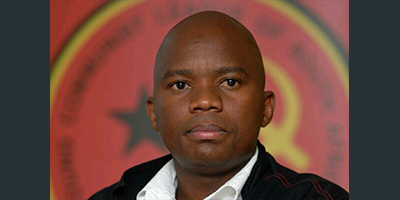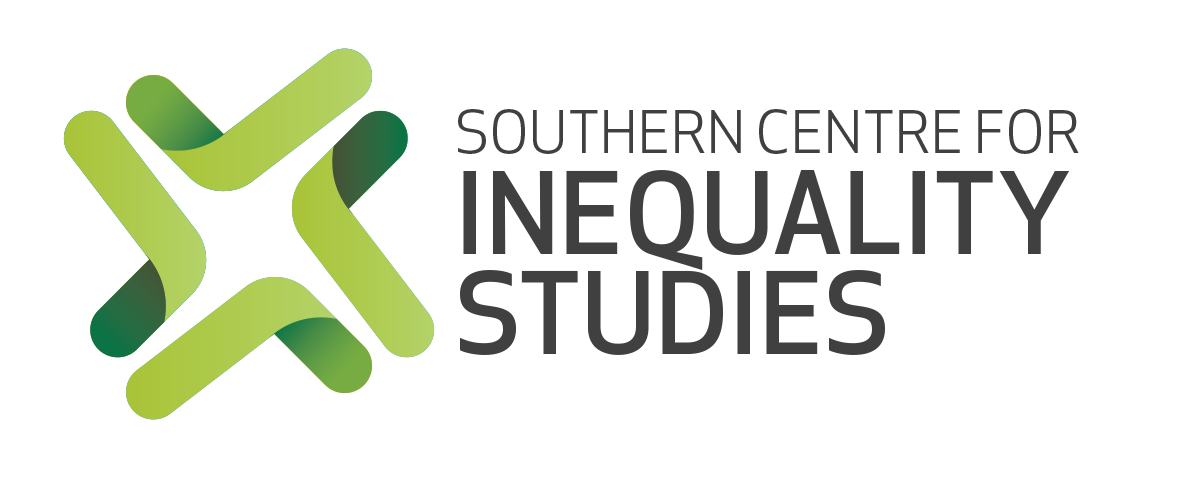7Qs for Academics: Edward Webster
This is an ongoing series where we introduce some key researchers and academics getting to understand their work, their developing research interests as well as what keeps them engaged.
 Reasons for Uneven Digital Technologies
Reasons for Uneven Digital Technologies
By Sandiswa Mapukata
This is the second of three blog posts that will examine the relationship between digital technologies and work. Read the first one here.
 Digital Technologies and the World of Work
Digital Technologies and the World of Work
By Sandiswa Mapukata
This is the first of three blog posts that will examine the relationship between digital technologies and work.
The story of a working man who lived through apartheid – and his struggles after it ended
Edward Webster profiled Mandlenkosi Makhoba, one of the last of a generation of grassroots worker leaders of the Federation of South African Trade Unions (Fosatu) - (with Prof Stewart, University of Zululand)
When university resources are scarce, building and sustaining equitable research excellence should be paramount
“In the midst of the 足球竞彩app排名 pandemic, the emergence of successful solutions to the unprecedented levels of uncertainty and disequilibrium created in our society and in our economy, will depend largely on our ability to harness capabilities in scientific research – be that in the traditional sciences, the health sciences or the social and economic sciences.” Imraan Valodia and co-authors
Higher education needs a new model for global partnerships
International collaborations should focus on building institutions rather than individuals, say Imraan Valodia (with Adam Habib)
Policy Brief
Arabo Ewinyu, David Francis, Kamal Ramburuth-Hart and Imraan Valodia provided input for an ILO Brief on the intersection between COVID-19 and gender. Fuller article here.
 7Qs for Academics: Ravi Kanbur
7Qs for Academics: Ravi Kanbur
This is an ongoing series where we introduce some key researchers and academics getting to understand their work, their developing research interests as well as what keeps them engaged.
 7Qs for Academics: Alex Mohubetšwane Mashilo
7Qs for Academics: Alex Mohubetšwane Mashilo
This is an ongoing series where we introduce some key researchers and academics getting to understand their work, their developing research interests as well as what keeps them engaged.
 Technology is a powerful determinant of change, but labour can shape its direction
Technology is a powerful determinant of change, but labour can shape its direction
While technology is indeed a powerful determinant of change, it is important to recognise the role that worker organisation and the state, through its industrial policy, play in shaping the direction of change.
Alex Mohubetswane Mashilo
 7Qs for Academics: Nomfundo Ngwenya
7Qs for Academics: Nomfundo Ngwenya
This is an ongoing series where we introduce some key researchers and academics getting to understand their work, their developing research interests as well as what keeps them engaged.
 South Africa needs to focus urgently on how COVID-19 will reshape its labour market
South Africa needs to focus urgently on how COVID-19 will reshape its labour market
David Francis and Imraan Valodia, contributor Kamal Ramburuth-Hurt
South Africa must urgently consider how COVID-19 will reshape its labour market that is already characterised by high unemployment and inequality. They highlight four areas of the labour market that require scrutiny: the informal economy; turbulence and job churn; increasing capital intensity; and gender and work.
 Universal basic income
Universal basic income
Ruth Castel-Branco
The 足球竞彩app排名 crisis has exposed and intensified institutionalised structures of inequality everywhere. As countries struggle to respond to its social, economic and political fallout, even mainstream leaders have begun to consider universal basic income (UBI).
In its simplest form, a UBI is a publicly funded, unconditional cash transfer paid regularly to all on the basis of citizenship.
 South Africa can get COVID-19 under control if it blocks the routes that enable transmission
South Africa can get COVID-19 under control if it blocks the routes that enable transmission
Alex van den Heever, Imraan Valodia, Lucy Allais, Martin Veller, Shabir Madhi, and Willem Daniel Francois Venter
As the lockdown is relaxed, South Africa’s focus should now be on how best to suppress the spread of the SARS-CoV-2 virus using other strategies. Policy should be informed by understanding the spread of the virus both in terms of the main mechanism of transmission (respiratory particles) as well as in terms of the connections that result in spread between communities. Crucially, not all spreaders are equal, and understanding this is important for policy.
 7Qs for Academics: Christoph Scherrer
7Qs for Academics: Christoph Scherrer
This is an ongoing series where we introduce some key researchers and academics getting to understand their work, their developing research interests as well as what keeps them engaged.
 7Qs for Academics: Ujithra Ponniah
7Qs for Academics: Ujithra Ponniah
This is an ongoing series where we introduce some key researchers and academics getting to understand their work, their developing research interests as well as what keeps them engaged.
 Health and Inequality
Health and Inequality
In South Africa, access to health care is highly unequal, primarily along income lines at the individual or provincial level as well as other arising from other factors. Underlying the bid to control the spread of COVID-19 is the need to identify as many individuals that might have contracted the disease and isolate or quarantine them accordingly. Hence, the central role of testing and ensuring that all who require the test have access to it cannot be overstated.
 Reading list: The lockdown across three viewpoints
Reading list: The lockdown across three viewpoints
These are the additional readings for the second blog post in our series discussing how inequality intersects with the COVID-19 pandemic.
- ENCA (2020). Explainer: Ramaphosa's three-point economic COVID-19 relief plan.
- Chatterjee, A., Czajka, L., & Gethin, A. (2020). Estimating the Distribution of Household Wealth in South Africa. SCIS.
- Mailovich, C. (2020). Locked out: society’s outcasts. Financial Mail.
- Patrick, A. (2020). I am at home, this is my verge: Why it's hard to stay inside when living in a township. Dispatch Live.
- Trenchard, T. (2020). Photos: Lockdown In The World's Most Unequal Country. NPR.
- Gevisser, M. (2020). How Can You Social Distance When You Share a Toilet With Your Neighbor? The New York Times.
- Statistics South Africa. (2018). General Household Survey 2018. Stats SA.
- Maeko, T. & Mathe, T. (2020). The crisis can ‘galvanise all of us to eradicate inequality’. Mail & Guardian.
- Steenekamp, P. (2020). Reader Letter | Lockdown feels like we are back in apartheid days. Dispatch Live.
- Francis, D. & Valodia, I. (2020). South Africa needs to mitigate the worst of its inequalities in tackling coronavirus. SCIS.
 Economic policy remains hotly contested in South Africa: this detailed history shows why
Economic policy remains hotly contested in South Africa: this detailed history shows why
Edward Webster reviews the new book, Shadow of Liberation, by Vishnu Padayachee and Robert Van Niekerk. The authors revisit how economic and social policies were made from the late 1980s to the mid-1990s. The authors draw on 35 in-depth interviews with participants in the policy process. This pool of original data is complemented by a rich archive of primary and secondary sources. Together, these data sets reveal a fascinating story about who shaped these policies and how.
 South Africa’s COVID-19 strategy needs updating: here’s why and how
South Africa’s COVID-19 strategy needs updating: here’s why and how
Imraan Valodia, Alex van den Heever, Lucy Allais, Martin Veller, Shabir Madhi and Willem Daniel Francois Venter
In the context of the initial uncertainty, South Africa’s early lockdown was prudent. It allowed time to prepare the health care system, to ramp up wide-spread testing and to introduce other measures to reduce transmission rates. Extending the lockdown is no longer required. It is also no longer reducing transmission rates and has become unaffordable.
 The lockdown across three viewpoints
The lockdown across three viewpoints
Compiled by: David Francis and Arabo Ewinyu (SCIS) in collaboration with Andy Wassung (Soul Providers Collective)
The continued confinement to one’s own home, and the polarising experiences of and reactions to this by different classes of society, clearly expose the extreme and persistent economic and social inequalities in South Africa.
 Policing and Protection
Policing and Protection
Compiled by: Arabo K. Ewinyu (SCIS) in collaboration with Hlabangani Mtshali (Soul Providers Collective)
A frequently reported statement in relation to COVID-19 is how the pandemic has revealed various inequalities across South African societies. However, what are these inequalities and what is the impact on these sub-populations? Over a series of blog posts, we discuss a few of these themes.
 Coronavirus: why South Africa needs a wealth tax now
Coronavirus: why South Africa needs a wealth tax now
Aroop Chatterjee, Amory Gethin and Léo Czajka
A wealth tax on the top 1% of South Africans could raise R143 billion. This corresponds to 29% of the R500 billion COVID-19 package announced by the government.
 South Africa needs a post-lockdown strategy that emulates South Korea
South Africa needs a post-lockdown strategy that emulates South Korea
Alex van den Heever, David Francis, Francois Venter, Imraan Valodia, Lucy Allais, Martin Veller, Michael Sachs and Shabir Madhi
South Africa cannot afford to embark on a strategy of extended periodic lockdowns. It needs to shift to mass testing and contact tracing.




